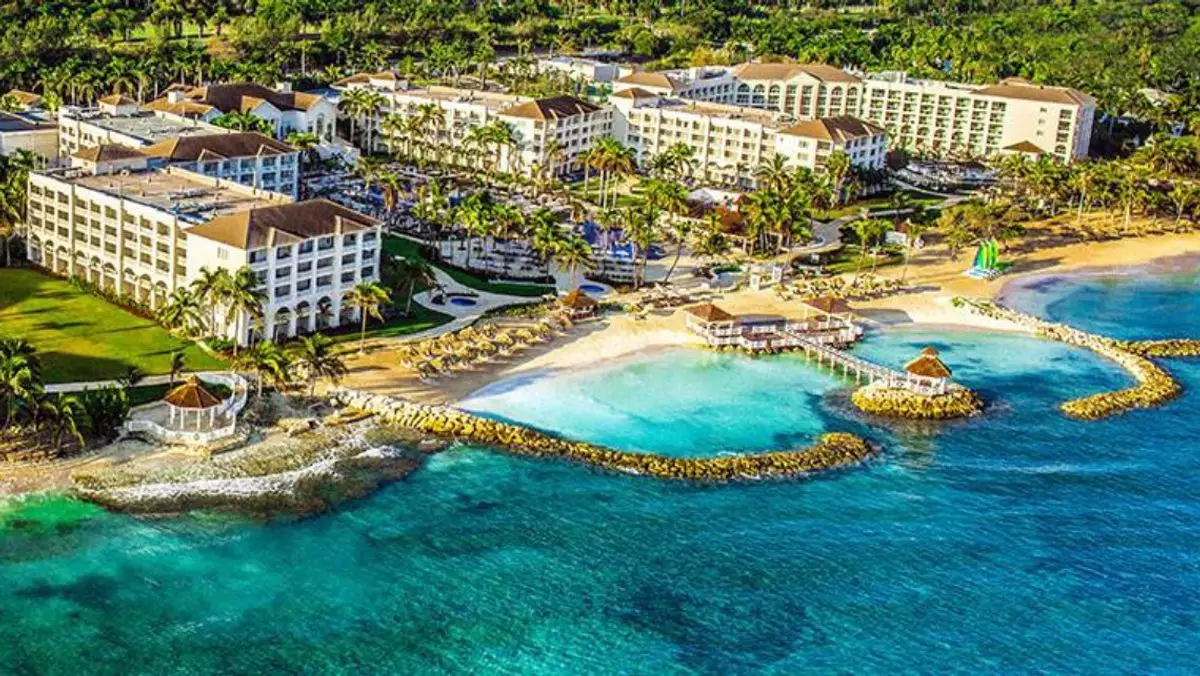As the hospitality industry evolves, Hyatt Hotels Corporation stands as a prominent player in the all-inclusive market. Even though it has made significant inroads into this lucrative sector, Hyatt’s ambitions have not waned. On February 10, the company unveiled plans to acquire Playa Hotels & Resorts for a staggering $2.6 billion. This acquisition aims to add 24 all-inclusive resorts located in the Caribbean and Mexico, amplifying Hyatt’s existing portfolio of more than 120 Inclusive Collection properties worldwide. However, this ambitious maneuver raises questions about Hyatt’s ability to manage its rapid expansion effectively.
Strategic Significance of the Acquisition
Hyatt’s acquisition of Playa Hotels & Resorts isn’t merely a numbers game; it’s also a strategic play to consolidate its influence in the all-inclusive domain. This deal positions Hyatt to secure long-term management agreements for its hotel brands Hyatt Ziva and Hyatt Zilara, which have historically been operated by Playa under a longstanding partnership. Patrick Scholes, a respected figure in lodging and leisure equity research at Truist Securities, highlighted that this move would allow Hyatt to enhance its control over these valuable brands. By eliminating Playa as a competitor in the management space, Hyatt stands to benefit significantly from its operational strategies, potentially improving the overall efficiency of its properties.
Yet, Playa is not limited to Hyatt’s brands; its portfolio also includes properties associated with other major hotel brands such as Hilton and Marriott. This diversification poses an intriguing question about whether Hyatt can leverage Playa’s resources effectively while branding distinctively its own offerings. It remains crucial for Hyatt to navigate this landscape thoughtfully, striking a balance between consolidating operations and upholding the diversity that appeals to a broad spectrum of travelers.
As part of the acquisition strategy, Hyatt plans to divest some of Playa’s owned real estate, with expectations of raising at least $2 billion by the close of 2027. Such a financial maneuver not only helps recoup some of the investment made but also frees up capital that can be strategically reinvested into high-yield areas. Scholes estimates that retaining management contracts on sold properties could generate around $20 million in annual management and franchise fees for Hyatt. This financial foresight illustrates Hyatt’s keen understanding of asset management and revenue generation as it successfully integrates Playa’s assets into its portfolio.
The insight from industry observers sheds light on the potential complexities associated with the acquisition. As Abbey Meyer, CEO and founder of Altitude Travel, pointed out, streamlining the booking process could significantly benefit travel advisors, addressing historical fragmentation. The consolidation could enhance Hyatt’s distribution channels, particularly through ALG Vacations, simplifying for travel agents the complex web of booking procedures that was previously in place.
The proposed acquisition follows Hyatt’s landmark $2.7 billion purchase of Apple Leisure Group in 2021, which included several renowned all-inclusive brands such as Secrets and Dreams. Furthermore, Hyatt’s joint venture with Grupo Pinero in 2024 expanded its reach by integrating the Bahia Principe Hotels & Resorts into its portfolio. With these aggressive moves into the all-inclusive market, Hyatt has not only diversified its offerings but has also positioned itself as a formidable competitor against other hotel giants.
However, the rapid expansion raises concerns among industry experts. The hospitality sector is notoriously competitive and demanding. Meyer pointed out the risks associated with Hyatt’s aggressive growth strategy, particularly as it involves exploring new markets in Europe, thereby broadening its financial and operational responsibilities. Industry stakeholders are keeping a close eye on Hyatt’s ability to maintain its service quality while scaling operations.
As Hyatt embarks on this ambitious journey, it must confront the challenges of maintaining its reputation for excellent customer service amid rapid expansion. The expectations of loyal guests and the promises made through its loyalty programs must be met with tangible results. This is not merely a financial exercise but a commitment to delivering quality, which is vital in retaining customer trust.
Industry experts like Yariv Ben-Ari, co-chair at Herrick Feinstein, assert the importance of ensuring that Hyatt can genuinely fulfill its promises to guests. With competitive pressures increasing and customer expectations evolving, Hyatt will need to leverage its expanded portfolio carefully, ensuring that it doesn’t compromise the very standards that contributed to its success.
While Hyatt’s acquisition of Playa Hotels & Resorts marks a significant milestone in its corporate journey, it is also a critical juncture. The onus is now on Hyatt to navigate this expansion thoughtfully, balancing financial gains with the unwavering expectation of delivering exceptional guest experiences. As the company ventures into this new chapter, it must uphold the reputation that has long defined its legacy.


Leave a Reply